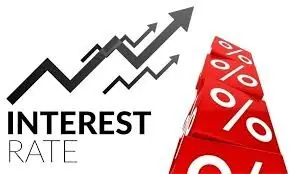Our experts answer readers’ home-buying questions and write unbiased product reviews (here’s how we assess mortgages). In some cases, we receive a commission from our partners; however, our opinions are our own.
Average 30-year mortgage rates are up this week. A week ago, this rate was at 6.48%; now, it’s around 10 basis points higher. Average 15-year fixed mortgage rates are up even more, nearly 20 basis points higher than they were this time last week.
Whether rates trend down soon depends on whether the economy cools. Inflation has been decelerating, but it’s still relatively high. Next week’s Consumer Price Index report will give us a clearer picture of whether price growth is sufficiently cooling.
Additionally, borrowers should keep an eye on Friday’s jobs report release. The labor market has so far remained surprisingly resilient in the face of Federal Reserve policy tightening, which has helped keep rates high. But as job growth slows, mortgage rates should recede somewhat.
Today’s mortgage rates
| Mortgage type | Average rate today |
Today’s refinance rates
| Mortgage type | Average rate today |
Mortgage Calculator
Use our free mortgage calculator to see how today’s interest rates will affect your monthly payments:
Mortgage Calculator
%
%
Your estimated monthly payment
$418,177
$275,520
$42,657
- Paying a 25% higher down payment would save you $8,916.08 on interest charges
- Lowering the interest rate by 1% would save you $51,562.03
- Paying an additional $500 each month would reduce the loan length by 146 months
By clicking on “More details,” you’ll also see how much you’ll pay over the entire length of your mortgage, including how much goes toward the principal vs. interest.
Mortgage Rate Projection for 2023
Mortgage rates started ticking up from historic lows in the second half of 2021 and increased over three percentage points in 2022.
But many forecasts expect rates to begin to fall this year. In their latest forecast, Fannie Mae researchers predicted that 30-year fixed rates will trend down throughout 2023 and 2024.
But whether mortgage rates will drop in 2023 hinges on if the Federal Reserve can get inflation under control.
In the last 12 months, the Consumer Price Index rose by 4%. This marks another month of slowing price growth and is a sign that the Fed’s efforts are paying off.
For homeowners looking to leverage their home’s value to cover a big purchase — such as a home renovation — a home equity line of credit (HELOC) may be a good option while we wait for mortgage rates to ease. Check out some of our best HELOC lenders to start your search for the right loan for you.
A HELOC is a line of credit that lets you borrow against the equity in your home. It works similarly to a credit card in that you borrow what you need rather than getting the full amount you’re borrowing in a lump sum. It also lets you tap into the money you have in your home without replacing your entire mortgage, like you’d do with a cash-out refinance.
Current HELOC rates are relatively low compared to other loan options, including credit cards and personal loans.
When Will House Prices Come Down?
Home prices declined a bit on a monthly basis late last year, but we aren’t likely to see huge drops this year, even if there’s a recession.
Fannie Mae researchers expect prices to decline 1.2% in 2023, while the Mortgage Bankers Association expects no decrease in 2023 and a 1% decrease in 2024.
Sky high mortgage rates have pushed many hopeful buyers out of the market, slowing homebuying demand and putting downward pressure on home prices. But rates may start to drop soon, which would remove some of that pressure. The current supply of homes is also historically low, which will likely keep prices from dropping too far.
What Happens to House Prices in a Recession?
House prices usually drop during a recession, but not always. When it does happen, it’s generally because fewer people can afford to purchase homes, and the low demand forces sellers to lower their prices.
How Much Mortgage Can I Afford?
A mortgage calculator can help you determine how much you can afford to borrow. Play around with different home prices and down payment amounts to see how much your monthly payment could be, and think about how that fits in with your overall budget.
Typically, experts recommend spending no more than 28% of your gross monthly income on housing expenses. This means your entire monthly mortgage payment, including taxes and insurance, shouldn’t exceed 28% of your pre-tax monthly income.
The lower your rate, the more you’ll be able to borrow, so shop around and get preapproved with multiple mortgage lenders to see who can offer you the best rate. But remember not to borrow more than what your budget can comfortably handle.









